Cardiology & Heart Care at the Heart & Vascular Institute
Exceptional cardiovascular care
At Novant Health, we provide the resources, guidance and expertise to keep your heart strong and healthy. Whether you are looking for a diagnosis, seeking treatment from our expert cardiology team or hoping to reduce your risk of heart disease, our heart and vascular specialists are here for you.
Take the First Step
If you believe you are at risk for heart disease, it’s time to take the first step in improving your cardiac health. Visit your primary care provider to discuss your heart health to see if you need a referral to one of our heart specialists. If you do not have a primary care provider, follow the steps below to get started:
Step 1:
Visit your Primary
Care Provider
Step 2:
Discuss your
concerns
Step 3:
Your provider gives
a referral
Step 4:
Choose the right
specialist for you
"I'm Running Marathons And Stronger Than Ever"
Three months after receiving a pacemaker, Peyton Chitty ran a half marathon. And he's not slowing down. He wants people to know life isn't over with a diagnosis, especially when you have remarkable care from Novant Health.
Nationally Recognized Heart & Vascular Care
Novant Health is widely recognized as being among the best options in the nation for treating heart attacks.
- Gold Plus Award - Get with the Guidelines, American Heart Association/American Stroke Association, 2024
- American College of Cardiology:
- Gold Performance Achievement Award - Chest Pain
- Chest Pain Center Accreditation
- CathPCI Registry
- Left Atrial Appendage Occlusion (LAAO) Registry

Are You At Risk For Heart Disease?
Listen to your heart and see if you are at risk for heart disease. It only takes 5 minutes to answer a few questions and live a healthier life.
Why Choose Novant Health?
Count on Novant Health to be your lifelong heart and vascular care provider. Through a network of cardiologists, surgeons, electrophysiologists, radiologists, therapists and locations, you'll have access to the level of care you need throughout your lifetime.

We know that finding the cardiovascular care you need can be a long and complicated journey, requiring multiple visits to multiple specialists. To make it easier to get the care you need when you need it, you'll have access to multiple specialists at many of our Novant Health Heart & Vascular clinics.
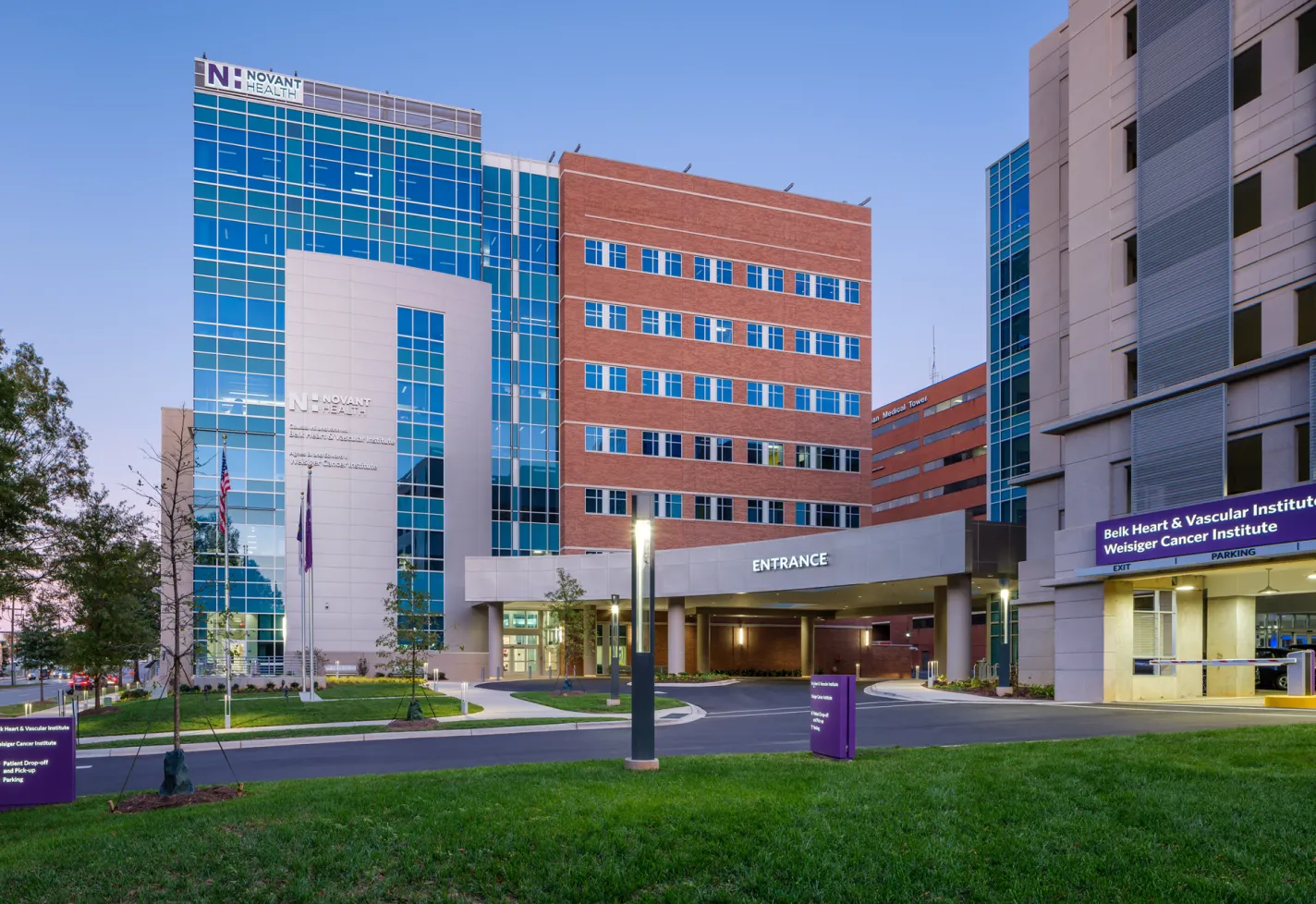
You may qualify for clinical trials involving new medications, less invasive surgical procedures, medical devices and other novel therapies designed to reduce side effects, speed recovery times and improve your overall health and quality of life.
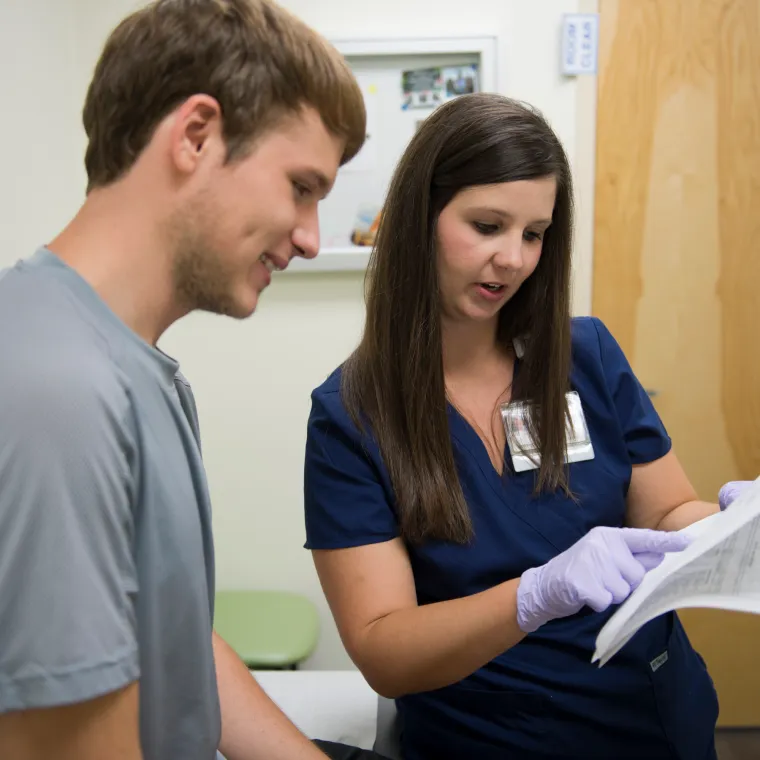
Experience elevated heart and vascular care. Novant Health is recognized by the American Heart Association and the American College of Cardiology for following guidelines that ensure you receive care proven to save more lives, shorten recovery times and reduce hospital readmissions.
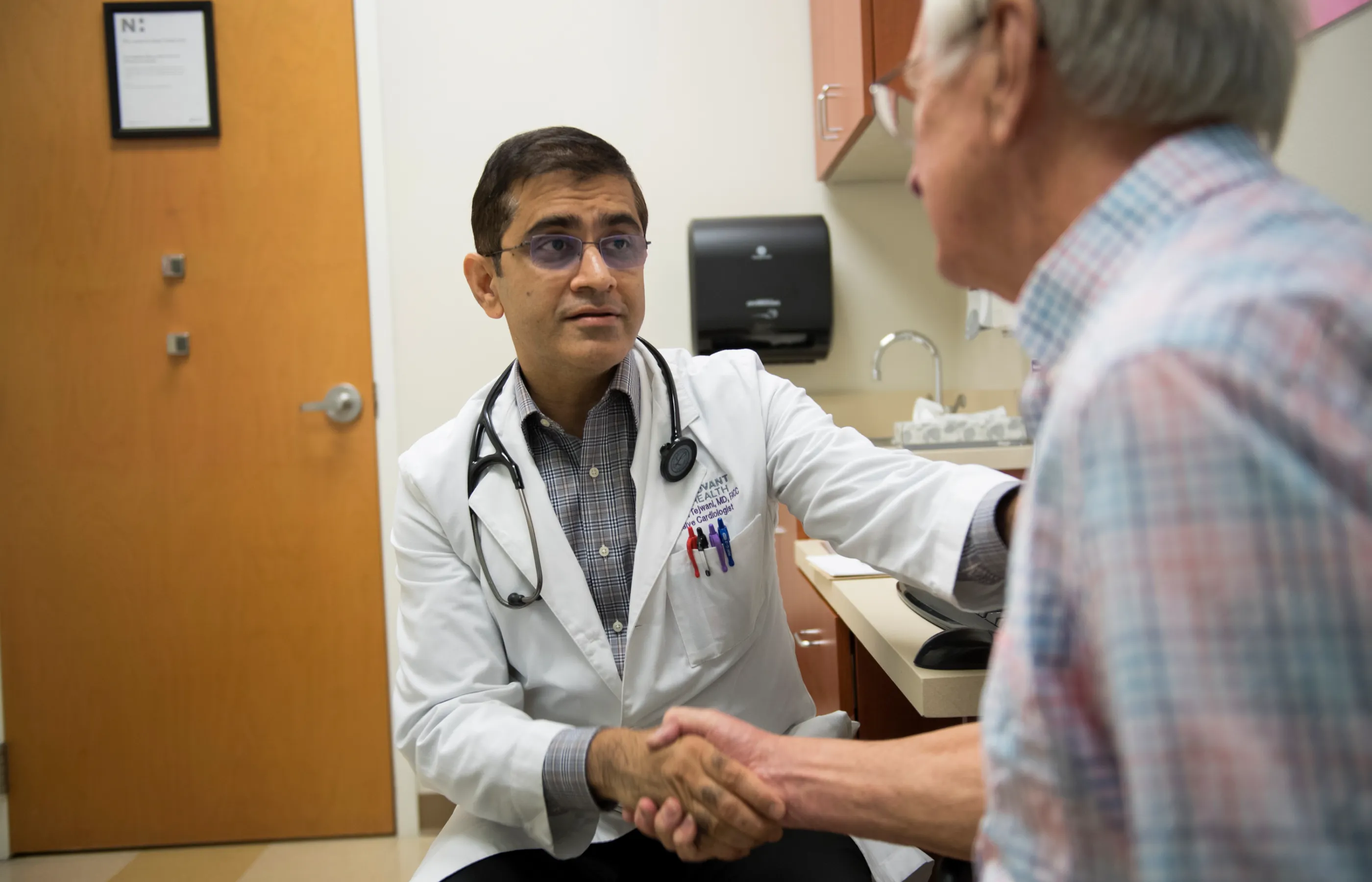
Adult Cardiovascular Specialists
General cardiologist
Your primary care provider may refer you to a general cardiologist for further evaluation and treatment if your risk factors for cardiovascular disease worsen or you have a heart attack or acute event.
In addition to four years of medical school and three years of residency in internal medicine, general cardiologists complete a four-year cardiology fellowship. They use this advanced training to help prevent, diagnose, treat and manage your cardiovascular disease.
Depending on your symptoms and/or condition, this could involve:
- Conducting or ordering news tests
- Recommending lifestyle changes to help you eat healthier, get regular exercise and reduce stress
- Adjusting existing medications and/or prescribing new ones
- Referring you to other cardiovascular specialists
Interventional cardiologists
These are cardiologists who have completed an additional two years of training so they can perform catheter-based techniques and diagnose and treat coronary artery disease, vascular disease, structural heart disease, and congenital heart defects. They use various diagnostic tools and imaging techniques to measure cardiovascular functions such as blood pressure and blood flow in major arteries, but do not perform traditional “open” heart surgeries.

Electrophysiologists
These are cardiologists who complete an additional two years of medical training focused on diagnosing and treating heart rhythm problems related to the heart’s electrical activity. They conduct diagnostic procedures and treat arrythmias by prescribing medicine, implanting electrical devices and performing catheter ablations.
Nuclear cardiologists
These specialists use advanced medical imaging to assess cardiac function for diagnostic and heart treatment purposes.
Cardiothoracic surgeons
Cardiothoracic surgeons are trained to perform surgery on organs and tissues located in the chest, or thoracic cavity. This includes cardiac surgeons who specialize in treating the heart and valve disease and cardiovascular surgeons who specialize in treating coronary artery disease.

Vascular specialists
Vascular specialists are medical doctors who focus on the body's circulatory and lymphatic systems. They treat conditions that interfere with blood flow in all areas except the heart and the brain. Vascular health can be closely related to heart health, or it may be impacted by other medical conditions.
While vascular specialists are usually surgeons, they also treat with medications and suggest lifestyle changes to help you manage vascular conditions. Many vascular surgeons at the Novant Health Heath & Vascular Institute (HVI) are board certified in both open surgical treatment for vascular disease and minimally invasive, or endovascular, surgery. Some are also double-certified in general surgery.
Vascular surgeons
Vascular surgeons specialize in surgical procedures involving the veins, arteries and lymph system outside of the brain and the heart. For example, vascular surgeons treat blocked carotid arteries in the neck, problems affecting the descending aorta and slow-heeling wounds to the feet. They are trained in both traditional open and less invasive endovascular surgeries.
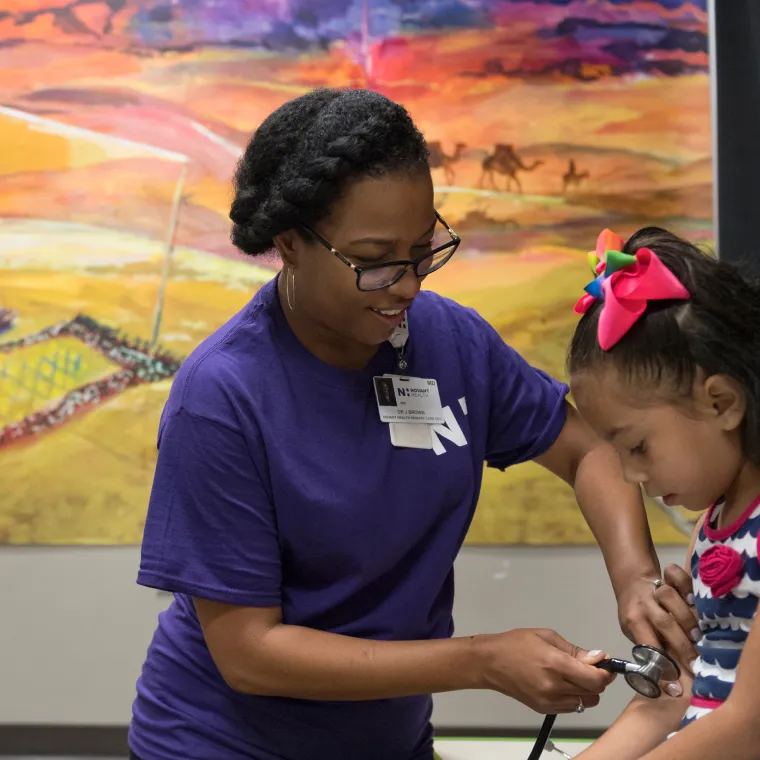
Pediatric Cardiology
If you have concerns that a child you care for has heart issues, you should consult a pediatric cardiologist. These providers specialize in treating congenital heart disease, heart rhythm issues and other heart problems that affect children.
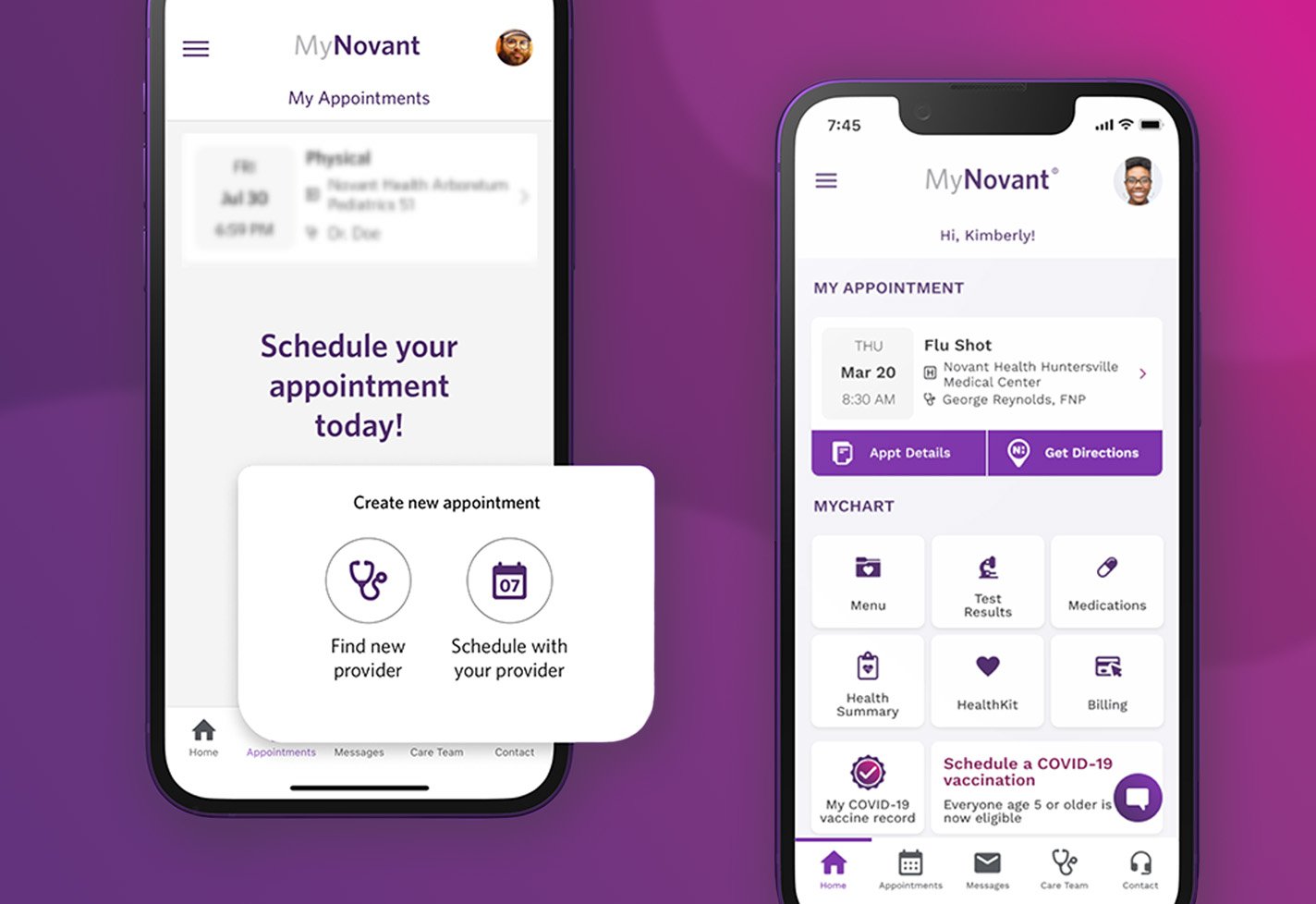
MyNovant app
With the MyNovant app, it's never been easier to manage your health. You can schedule appointments, view test results, refill prescriptions and even have virtual visits right from your computer or smartphone. Available on the Apple App Store and Google Play.
